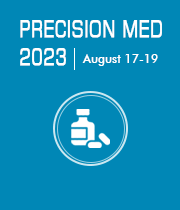Precision medicine in guiding clinical trials
Precision medicine is a method of improving patient outcomes by combining clinical and molecular patient data to better understand the disease's biological foundation. Precision medicine tailors treatment to a patient's unique traits, making it more exact in terms of how treatment affects specific individuals. Clinical trials are studies in which investigational drugs, technologies, or biologics, such as chemotherapy, blood products, or gene treatments, are tested for safety and efficacy in human volunteers. Building a therapy hypothesis, determining which patients react and why, and developing effective procedures for identifying those patients are all steps in precision medicine. The method entails considering drug delivery, biomarker response, and the diagnostic tool for locating the appropriate individuals. Clinical trials and medical therapy can become more successful, efficacious, and efficient as medicines are identified based on analytics. Clinical trials for precision medicine have several ethical and regulatory difficulties in common with clinical trials in general.
- FDA approval
- Adaptive studies
- Umbrella protocols
- Basket trials

Bernd Blobel
University of Regensburg, Germany
Roy Gary Beran
University of New South Wales, Australia
Matthias Schwab
University of Tubingen, Germany
Thomas Webster
Interstellar Therapeutics, United States
Boris Tankhilevich
Magtera, Inc., United States
Isabella Friis Jorgensen
University of Copenhagen, Denmark


Title : The use of anti seizure medication therapeutic blood level determination to personalise the treatment of epileptic seizures especially in patients attending the accident and emergency department
Roy Gary Beran, University of New South Wales, Australia
Title : Personalized and precision medicine (PPM) can be established as a unique healthcare model through biodesign-driven and inspired biotech, translational applications. This approach aims to ensure human healthcare, wellness, and biosafety.
Sergey Suchkov, Institute for Biotech & Global Health of RosBioTech and A.I. Evdokimov MGMSU, Russian Federation
Title : Monitoring folds localization in ultra-thin transition metal dichalcogenides using optical harmonic generation
Ahmed Raza Khan, Australian National University, Australia
Title : A systematic review of regulatory approaches for Direct- To- Consumers (DTC) genetic testing
Kavitha Palaniappan, Duke-NUS Medical School, Singapore
Title : Regulatory framework of in vitro diagnostic and artificial intelligence for precision medicine
Pei Ting Sarah Chou, Regulatory Affairs Professionals Society, Taiwan
Title : Unraveling cancer stem cell signatures in circulating tumor cells of metastatic colorectal cancer: Investigating ALDH1A1 and the repurposing potential of disulfiram via scRNA-seq
Nurul Syakima Ab Mutalib, Universiti Kebangsaan Malaysia, Malaysia